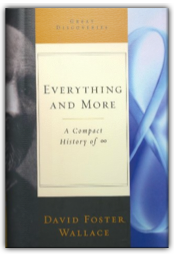
The best-selling author of Infinite Jest on the two-thousand-year-old quest to understand infinity.One of the outstanding voices of his generation, David Foster Wallace has won a large and devoted following for the intellectual ambition and bravura style of his fiction and essays. Now he brings his considerable talents to the history of one of math's most enduring puzzles: the seemingly paradoxical nature of infinity. 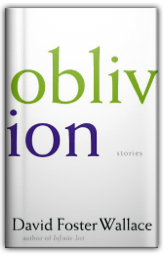
In the stories that make up Oblivion, David Foster Wallace joins the rawest, most naked humanity with the infinite involutions of self-consciousness—a combination that is dazzlingly, uniquely his. These are worlds undreamt-of by any other mind. Only David Foster Wallace could convey a father's desperate loneliness by way of his son's daydreaming through a teacher's homicidal breakdown ("The Soul Is Not a Smithy"). Or could explore the deepest and most hilarious aspects of creativity by delineating the office politics surrounding a magazine profile of an artist who produces miniature sculptures in an anatomically inconceivable way ("The Suffering Channel"). Or capture the ache of love's breakdown in the painfully polite apologies of a man who believes his wife is hallucinating the sound of his snoring ("Oblivion"). Each of these stories is a complete world, as fully imagined as most entire novels, at once preposterously surreal and painfully immediate. 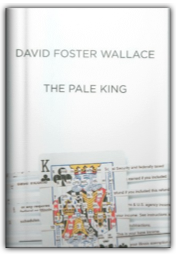
The agents at the IRS Regional Examination Center in Peoria, Illinois, appear ordinary enough to newly arrived trainee David Foster Wallace. But as he immerses himself in a routine so tedious and repetitive that new employees receive boredom-survival training, he learns of the extraordinary variety of personalities drawn to this strange calling. And he has arrived at a moment when forces within the IRS are plotting to eliminate even what little humanity and dignity the work still has. 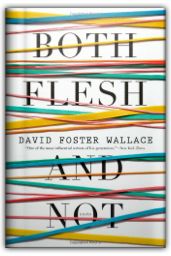
Brilliant, dazzling, never-before-collected nonfiction writings by "one of America's most daring and talented writers." (Los Angeles Times Book Review). 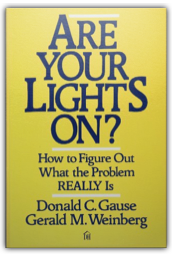
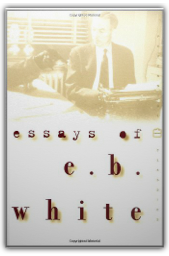
The classic collection by one of the greatest essayists of our time. |

The most lavish P. G. Wodehouse collection ever published. In addition to Wodehouse's best known and beloved Jeeves and Bertie stories, The Most of P. G. Wodehouse features delightful stories about The Drones Club and its affable, vacuous members: Mr. Mulliner, whose considered judgment on any and all topics is drawn from the experiences of his innumerable relatives; Stanley Featherstonehaugh Ukridge, the man of gilt-edged schemes; and Lord Emsworth, ruler of all he surveys at Blanding's Castle. Rounding out the collection are Wodehouses's witty golf stories and a complete and completely hilarious novel, Quick Service. As Jeeves would say, "The mind boggles, sir." 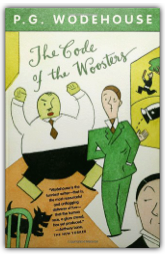
Wodehouse’s most famous creations, likeable nitwit Bertie Wooster and his effortlesly superior valet and protector Jeeves, reach a kind of apotheosis in The Code of the Woosters, in which Bertie is rescued from his bumbling escapades again and again by the ever-nonplussed gentleman’s gentleman Jeeves. 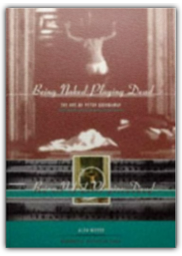
Greenaway's assertion that his is 'a cinema of ideas not plots' is developed in this book with discussion of his use of the themes of repetition, quotation theatricality, power relations and images of the nude as flesh. Close analysis of individual films such as The Cook, The Thief, His Wife and Her Lover, Belly of an Architect and Drowning by Numbers together with a discussion of his latest film The Pillow Book (1996) and recent interviews between Greenaway and Alan Woods about his work, make this book a must for all Greenaway enthusiasts. 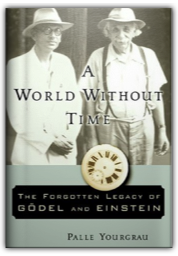
It is a widely known but little considered fact that Albert Einstein and Kurt Gödel were best friends for the last decade and a half of Einstein's life. The two walked home together from Princeton's Institute for Advanced Study every day; they shared ideas about physics, philosophy, politics, and the lost world of German science in which they had grown up. By 1949, Gödel had produced a remarkable proof: In any universe described by the Theory of Relativity, time cannot exist. Einstein endorsed this result-reluctantly, since it decisively overthrew the classical world-view to which he was committed. But he could find no way to refute it, and in the half-century since then, neither has anyone else. Even more remarkable than this stunning discovery, however, was what happened afterward: nothing. Cosmologists and philosophers alike have proceeded with their work as if Gödel's proof never existed -one of the greatest scandals of modern intellectual history. A World Without Time is a sweeping, ambitious book, and yet poignant and intimate. It tells the story of two magnificent minds put on the shelf by the scientific fashions of their day, and attempts to rescue from undeserved obscurity the brilliant work they did together. 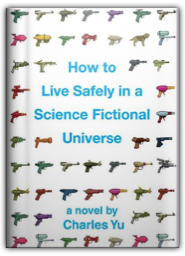
National Book Foundation 5 Under 35 Award winner Charles Yu delivers his debut novel, a razor-sharp, ridiculously funny, and utterly touching story of a son searching for his father . . . through quantum space–time. 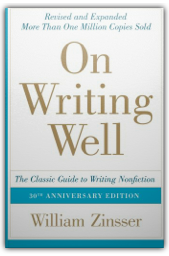
On Writing Well has been praised for its sound advice, its clarity and the warmth of its style. It is a book for everybody who wants to learn how to write or who needs to do some writing to get through the day, as almost everybody does in the age of e-mail and the Internet. |

Jack Baty
Collection Total:
256 Items
256 Items
Last Updated:
Dec 9, 2012
Dec 9, 2012


 Made with Delicious Library
Made with Delicious Library